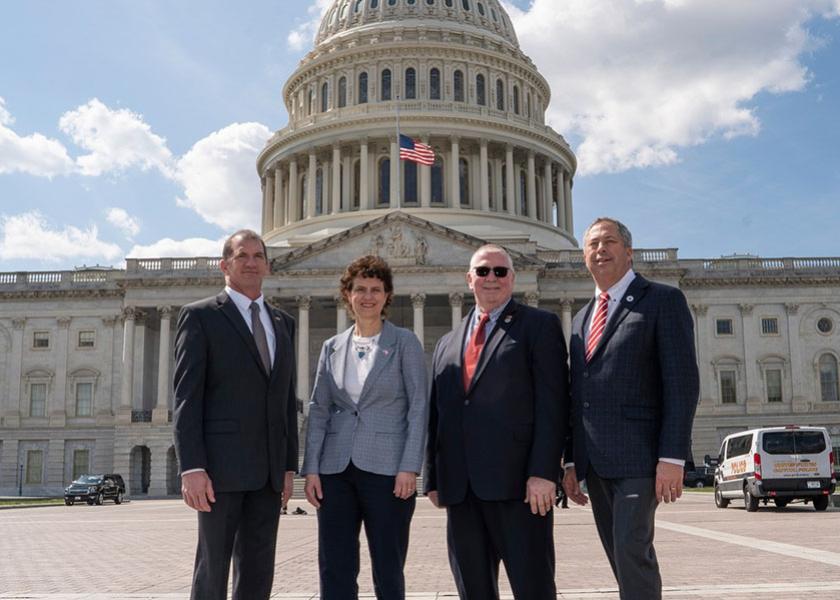The Fight for Pork Producers’ and Consumers’ Choice Continues

The uncertainty surrounding Proposition 12 is one reason why Scott Hays, a Missouri pork producer and president of the National Pork Producers Council (NPPC), says he’s not interested in changing how his farm produces pork.
That producer choice is exactly what NPPC continues to fight for, he says, because NPPC believes that also provides consumer choice.
“Most of the cost is borne by the producer. There's a little bit of cost in segregation after the pig leaves the farm, but most of the cost is up to the producer. The only revenue from that comes directly from the consumer. They're going to have to pay more, and we don't know whether they're going to be willing to do that,” Hays says.
Even if they do, that consumer dollar must pass from the retailer down through two or three channels before it gets back to the producer, he points out.
“For my family, we're just not willing to bet the farm that's going to happen,” Hays says. “I think there's a little bit of a wait-and-see attitude out here. Are these going to be real markets that folks are going to be willing to participate in? Obviously, the consumers voted for this. But now let's see if they're going to open their wallets and actually do it.”
Will California Consumers Pay More for Prop 12 Pork?
He says some of the preliminary information NPPC is getting is that consumers are somewhat reluctant to do that.
“There is retail scanner data out there showing prices are up about 27% year-over-year in California pork products. It also looks like consumption is down. We're not sure exactly why on that, if it's availability or if it's price,” Hays says. “Remember, Prop 12 won't be fully implemented until after the first of the year, that's when all products will have to be in compliance.”
From NPPC CEO Bryan Humpheys’ perspective, given the financial struggles the pork industry is up against now and what he’s hearing from producers, it raises real questions on whether or not the investment to become compliant would pay off.
“From our vantage point, every farm is going to be different. How they prefer to manage operations is an individual business decision. We respect our job is to help them through that process if they so choose,” Humphreys says.
Frustration Mounts Among Producers
Perhaps that’s why so many pork producers remain frustrated. Why does one state get to tell another state what they should do?
“I've said it before, as a Minnesota pork producer, I don't think California should tell me how to raise pigs,” says Lori Stevermer, NPPC president-elect. “In terms of adapting housing practices, producers have been doing that all along. If people want to raise pigs outdoors, they can raise pigs outdoors. If they want to raise pigs inside, they can be inside. The market determines the incentives producers might receive from their processors, so that hasn't changed at all. The part that's frustrating is one state telling others what to do.”
NPPC’s Chief Legal Strategist Michael Formica says although there are limited legal options available to try and stop Proposition 12, which went into effect on Jan. 1, it doesn't mean there are none.
“With regard to future similar ballot initiatives, we continue to watch the battleground and prepare for future fights,” Formica says.
Can the Farm Bill Help?
NPPC’s goal is to push back against these types of state regulations, Hays says.
“What we don't want is 50 different markets to produce into. That's what could happen if each state comes up with their own standard. I think the EATS Act or something like that would certainly be helpful,” he says. “We're certainly hopeful that there'll be some fix. Congressman Thompson has been a champion of producers’ rights and consumers’ rights. He certainly wants to prevent the elitist in California from telling the rest of us how to raise pigs.”
Humphreys acknowledged the sponsors of the EATS Act for being willing to jump in and begin the conversation on behalf of the pork industry.
“We believe that this starts a conversation, but it goes beyond the pork industry,” Humphreys notes. “This is a struggle that many other industries could face.”
Read More:
Foreign Animal Disease: The Threat Isn’t Going Away for Pork Producers







